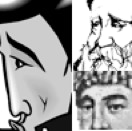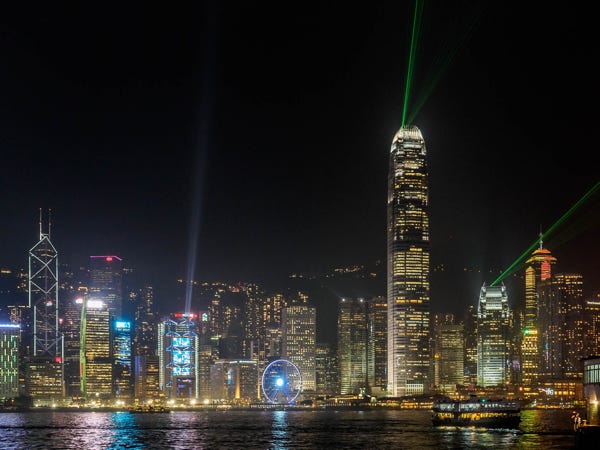
RASHI, RAMBAM and RAMALAMADINGDONG
A Quizbook of Jewish Trivia Facts & Fun

A Quizbook of Jewish Trivia Facts & Fun

Thousands of protesters were met by police with tear gas and water cannons in the streets of Hong Kong as China imposed new national security laws over Hong Kong, bypassing the territory’s legislature which normally would deal with such issues. The Jewish community in Hong Kong dates to the mid-1880’s. The Sassoon family of Iraq were among the first people to establish a business outpost in Hong Kong, which played a significant role in the growth of the territory. Another Jew who had an impact in Hong Kong was Matthew Nathan, who is remembered for Nathan’s Folly? What does that refer to?
Hong kong kowloon skyline by Gustavo Jeronimo is licensed under CC BY 2.0
A. Matthew Nathan was a British general during the era when merchants of the British East India Company began to grow opium in Bengal which they then wanted to sell in China. The Chinese resisted these efforts, which were harmful to their economy and led to major addiction problems. General Nathan pushed the British government to support the merchants, leading to the First Opium War from 1839-1842. Nathan led the British troops to victory, resulting in the transfer of Hong Kong to the British. However, the victory was hollow as Chinese resistance continued and intensified after the war, eventually leading to the Second Opium War in 1856. As a result, the First Opium War has become known as Nathan’s Folly.
B. Great Britain’s 100 year lease of Hong Kong came to an end in 1997. There was great trepidation in Hong Kong as to whether China would impose their restrictive political and economic system on the territory, which had been operating as a free market democracy. Because of these fears, a recession set in with property values greatly plummeting. Seeing an opportunity, Matthew Nathan, a British entrepreneur, purchased office buildings, shopping centers, and other properties throughout Hong Kong, believing that China would respect their agreement to let Hong Kong continue to operate as they had under British rule. In fact, though China did not initially intervene in any significant way, Nathan was not able to capitalize on his investments because of the general fear of the future, leading him to declare bankruptcy in 2002 in the largest bankruptcy filing in Hong Kong history, which became known as Nathan’s Folly.
C. Matthew Nathan was a British engineer who went to Hong Kong in the early 1900’s as part of British civil service. He proposed building an access road to the swampy area called Kowloon from the developed area of Hong Kong. Nathan Road was seen by many at the time as a huge waste of resources, thus getting the nickname Nathan’s Folly. Eventually, however, Kowloon grew to what is now the most densely populated part of Hong Kong, and Nathan Road is one of Asia’s most notable shopping areas.
D. While there had been a Jewish community in Hong Kong since the 1800’s, the numbers remained small, with only a couple of hundred Jews in Hong Kong in the 1960’s. One of those Jews, Matthew Nathan, decided that the community should have a synagogue and community building, instead of meeting in people’s houses, as had been the practice. He began a fundraising campaign reaching out to local Jews as well as Jews in Europe and America, as he developed plans for a 500 seat sanctuary and a social hall large enough to seat more than a thousand. Many in the local community thought that this was a waste of resources, as the community remained small and somewhat disconnected. Thus they dubbed the project Nathan’s Folly. Yet Nathan managed to raise more than $1 million and oversaw the construction of the building, which has become a focal point of the Hong Kong Jewish community, which has grown to approximately 5000 today.
E. Matthew Nathan was an American Jew who was raised in New York City. His family had a tradition of eating out every year on December 24 at a local Chinese restaurant, along with everyone else they knew. Nathan ended up moving to Hong Kong, where he decided to open a Chinese restaurant. People told him that he’d never succeed, as there were literally thousands of Chinese restaurants in Hong Kong. They called the project Nathan’s Folly, but Nathan moved forward, believing that he had a “guaranteed not-to-fail” marketing idea. He named the restaurant Christmas Eve, because he knew from experience that on Christmas Eve, Chinese restaurants were ALWAYS mobbed with people. Sadly, the idea did not catch on, and the restaurant quickly closed.
✡ ✡ ✡ ✡ ✡ ✡ ✡ ✡ ✡
© 2025 MMJZ Services, Inc.